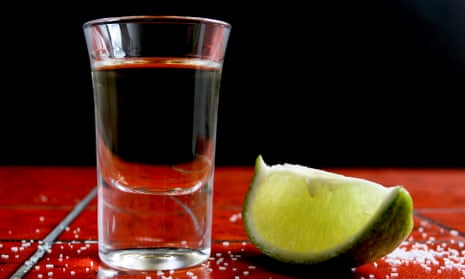An “angel shot” is not, in fact, a drink. Surreptitiously offered at a bar in St Petersburg, Florida (but thought to have originated in the UK), it is a secret code for women on dates to use if they feel unsafe “or even just a bit weird”. A poster in the women’s toilets, currently doing the rounds on social media, explains the system: if you order an angel shot neat, “your bartender will escort you to your vehicle”; if you order it with ice, “your bartender will call an Uber or Lyft”; if you order it with lime, “your bartender will call the police”.
Its intentions certainly seem angelic, and it has been received positively. However, feminists and violence-against-women campaigners have argued that putting the onus on women to protect themselves “discreetly” misses the point and contributes to victim-blaming – and the angel shot is not the first scheme of its kind.
Ask for Angela
Similar to the angel shot campaign – and also a play on the word “angel” – Ask for Angela was trialled successfully last year in Lincolnshire. Posters in women’s and men’s toilets, which include a phone number for Lincolnshire Rape Crisis, encourage people to ask for “Angela” if they feel uncomfortable, at which point staff will help them leave. Retweeted more than 28,000 times and deemed “a great idea” by actor Ashton Kutcher, the campaign is now being rolled out across the UK.
Black dot
Widely spread on Facebook last year and initiated by a victim of domestic violence, this concept asks women to draw a black dot on their hand to covertly signal abuse. The campaign gained 40,000 likes and scores of women posted pictures of black dots on their hands in solidarity, but it was criticised by campaigners, who argued that it could also put women at risk and that many people would not have the training to assist a woman in need.
Anti-rape underwear
In 2013, a company in New York called AR Wear came up with a range of lockable pants made from rip-proof material to “give women and girls additional power to control what happens to their bodies” and deter attackers from what it termed “a completed rape”. Slammed as a modern chastity belt, despite reaching its crowdfunding target of $50,000 in a month, the controversial message was clear: lock away vaginas, rather than rapists. The collection has yet to appear on sale.
Anti-rape nail polish
Developed by four male students at North Carolina State University, this nail polish was designed to empower women to ensure their safety “discreetly” (there’s that word again) . If the colour of the polish changes when a woman stirs a drink with her finger, it indicates that date-rape drugs are present in the drink. Widely shared on social media, the polish received criticism from people such as Lindy West, who tweeted: “How about women don’t have to wear a special nail polish and dunk their fingers in every cocktail to not get raped.” Others pointed out that date-rape drugs are a far smaller factor than alcohol in most sexual assaults.
Condoms with teeth
A doctor in South Africa created a condom, worn by women, with teeth-like hooks that latch on to a penis during penetration and can be removed only surgically. In 2010, 30,000 of the condoms, branded Rape-Axe, were distributed around South African cities where World Cup football matches were due to take place. Uproar ensued. Many people pointed out that not only did Rape-Axe advocate women taking responsibility for rape prevention by placing an object inside their bodies, but it also assumed that all rape is vaginal. What’s more, it would only “protect” a woman once she had already been forcefully penetrated.

Comments (…)
Sign in or create your Guardian account to join the discussion